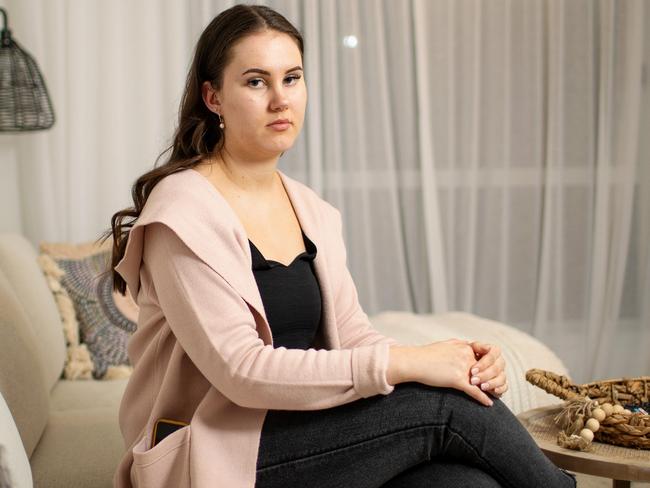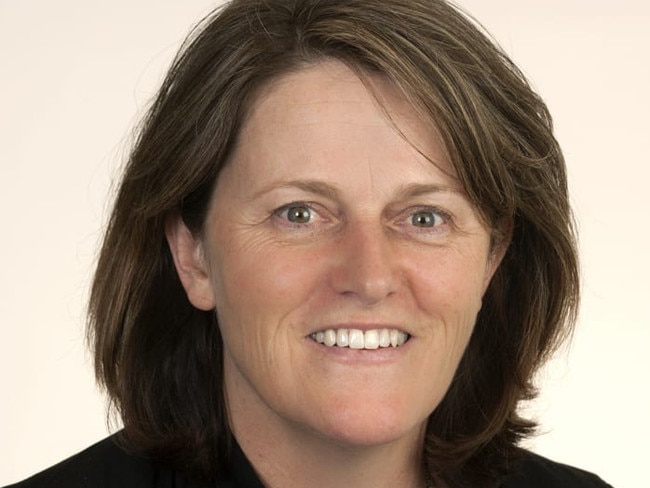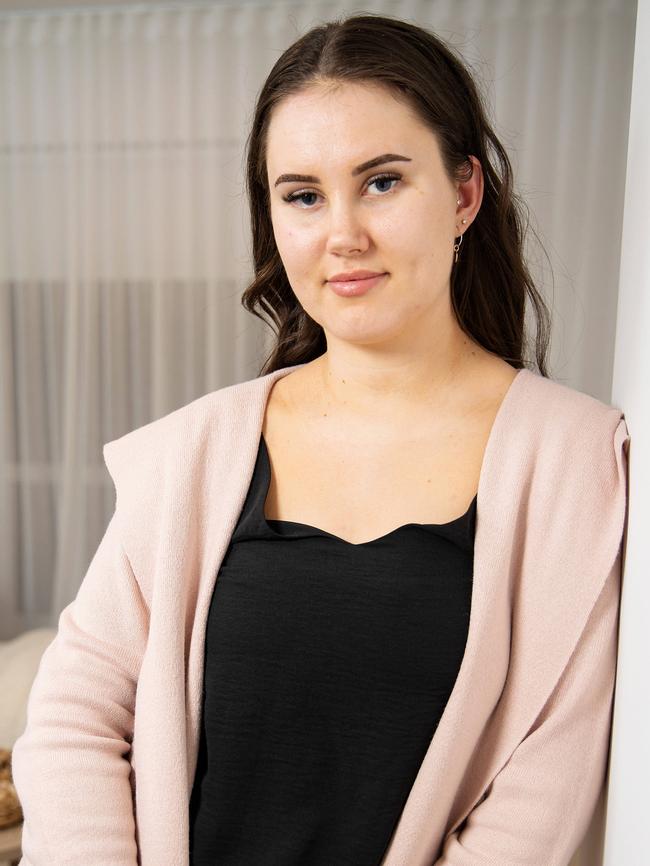Ashley Hall is one of 272,000 young carers who have had to look after their parents
Victorian Ashley Hall was just 13 when she began looking after her mum. She is one of many young carers across the nation who need more support.
News
Don't miss out on the headlines from News. Followed categories will be added to My News.
At just the age of 13, Ashley Hall’s life took a drastic turn.
After her mother became ill, the teen was forced to leave her father – whom she lived with since her parents separated when she was two – and move back in with her mum.
“Watching my mother suffer for so long and taking on a role no one else my age would dream of, my own mental health started to deteriorate,” Ms Hall, now 23, said.
“Caring more for my mother’s mental health was harder than her physical health.”
Suffering from depression, anxiety and rheumatoid arthritis for several years, Ms Hall’s mother required care around the clock, forcing Ashley into adulthood.
“Without an extended family network to turn to for help or support, I felt such a heavy burden placed solely on me,” Ms Hall said.
“I found it extremely hard to focus at school and I never considered my studies a priority. I was always so focused on taking care of my mother and the endless household responsibilities.”

Sadly, Ms Hall is not alone with peak carers organisation Carers Australia revealing there are 272,000 young carers across the nation – with at least 150,000 of those aged under 18.
In some households, children as young as six are being forced to care for their ill or disabled parents, tasked with the responsibility for the household cooking, dispensing medicine and providing “emotional sustenance”.
And Carers Australia warns the Covid-19 pandemic is only adding the stress and anxiety many of the young carers are already battling.
“The pandemic has seen more people than ever fulfilling a caring role,” Carers Australia chief executive officer Liz Callaghan said.
“This is particularly impacting young carers as they’ve been required to isolate at home with the person they care for, and deal with disrupted schooling.”
Ms Hall revealed her own mental health suffered towards the end of her schooling where she experienced “dark periods” and struggled thinking about her future.
“The mental impact of my caring role was huge. Caring for someone else’s mental health condition places a huge burden on your shoulders and makes you feel like someone else’s life is in your hands,” she said.
“Because of my responsibilities at home, I wasn’t able to reach my full potential socially or academically. I couldn’t get a part time job to start saving or even buy myself nice things.
“I wasn’t able to drop everything to attend a party or go to the movies with friends. I missed out on a lot of things growing up that are normal for the typical teenager.”

For young carers, peace of mind is a luxury other people enjoy.
Only 40 per cent of carers aged 19-24 attend university or TAFE, and they are much more likely to stay on welfare payments than their non-caring peers.
“Very often, young people will take on less obvious burdens and responsibilities … making sure their parent has eaten or taken their medications, looking out for their younger siblings, being vigilant about signs of increased pain or deterioration in their parent’s mental or physical health,” psychotherapist Helen Jones said.
“These responsibilities can have very different effects on young people from being anxious and withdrawn, falling behind in school work, withdrawing from after-school activities, and isolating from their peer groups.”
In a bid to meet the demand and provide additional support for young carers like Ms Hall, the Federal Government will fund $3 million worth of grants run by Carers Australia.
“The Young Carer Bursary Program gives young carers a sense of independence, recognition and hope for their future,” Ms Callaghan said.
“Many young carers appreciate their caring role and the ability to care for those they care about – but, caring can take its toll on a young person’s physical, emotional, social, psychological wellbeing now and into the future.
“These grants are available to acknowledge and support young carers and ensure they do not forgo their future career opportunities.”

It wasn’t until she was granted the Young Carer Bursary when she was 17, that Ms Hall was able to feel a “glimpse of independence” and experience things that most teens would take for granted like learning to drive.
Now working as a student wellbeing co-ordinator for children aged between five and 12, Ms Hall no longer takes care of her mother who is being looked after by another family member.
“I had to become independent from such a young age. You never know what someone has to go home to so it’s important to always be kind and open up conversations with young people about their experiences” she said.
“We have so many young people around us who have so much life experience and independence and they just need someone to support them and give them a hand in achieving their potential.”
Applications for the 2022 Young Carer Bursary Program opens August 16. For more information, visit www.youngcarersnetwork.com.au here.
If you need help, call Lifeline on 13 11 14 or Beyond Blue on 1300 224 636
If you are in a domestic violence situation call 1800 RESPECT (1800 737 732).
If you need help immediately please dial Triple Zero or your local police station.
More Coverage
Originally published as Ashley Hall is one of 272,000 young carers who have had to look after their parents





